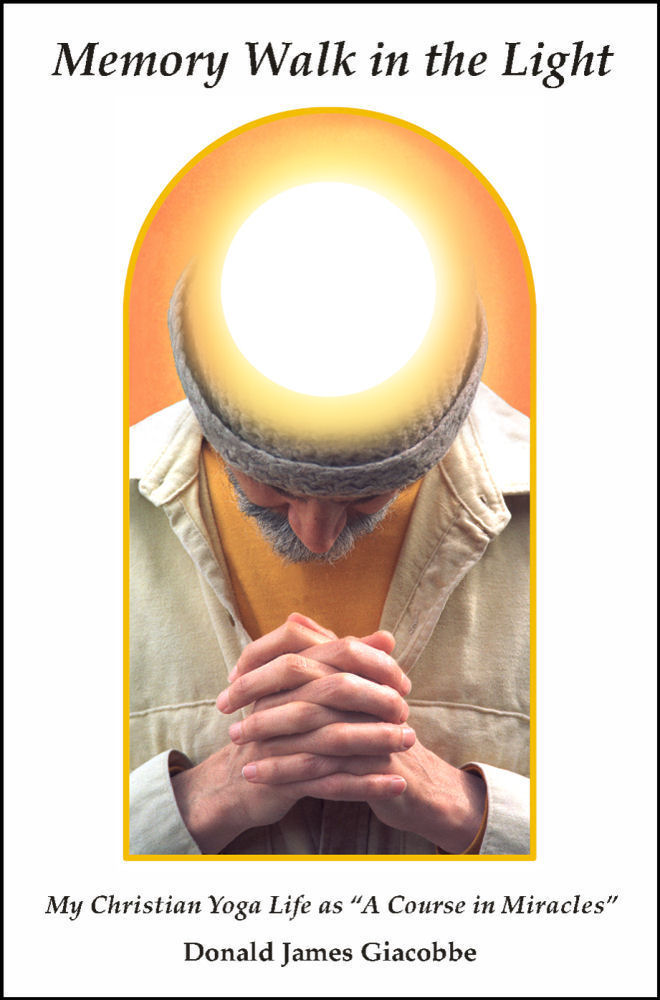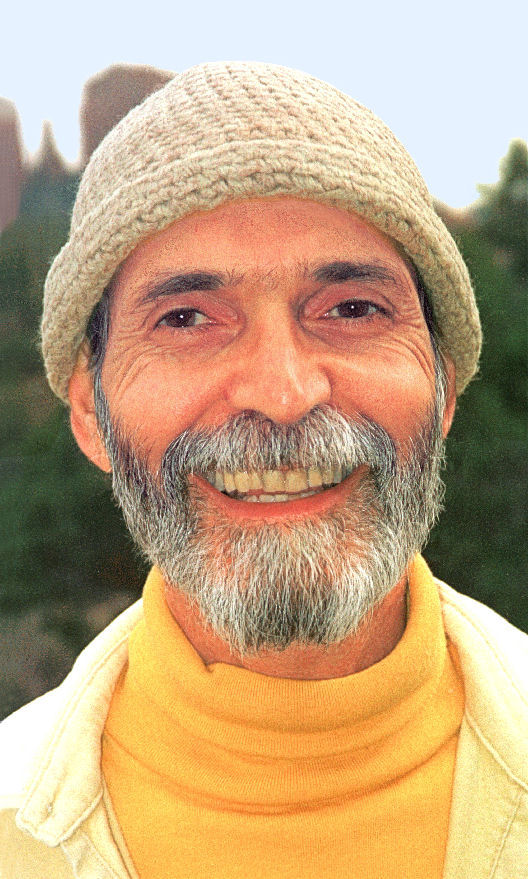What is
“A Course in Miracles”?

Is peace possible?
PEACE IS
POSSIBLE AND INDEED INEVITABLE

FINDING
PEACE OF MIND THROUGH "A COURSE IN
MIRACLES"
A Course in Miracles
teaches that problems and outer circumstances
in the world do not determine your peace of mind. The peace of Christ
is
already within you, waiting only for your recognition of its presence.
Whether
or not you gain access to this inner peace is up to you. You can set
aside
quiet times every day for meditation to become aware of the divine
presence and
the inner peace this presence brings. However, even if you do practice
meditation, the Course maintains that there is more that you need to do
to find
peace in the outer world of form. You are responsible for the decisions
that
bring either the perceptions of peace or the perceptions of turmoil to
your
mind. Yet how can you make choices that will bring peace to you in the
midst of
the challenging occurrences of life? You can find peace of mind no
matter what
is happening in your life by changing your thinking from perceptions of
fear to
perceptions of love and forgiveness. The Course provides a practical
means for
learning this lesson of changing perceptions with the goal of obtaining
peace
of mind. It is called A Course in Miracles because
a miracle is a change
in perception that manifests love instead of fear. The Course places a
great
deal of emphasis on your relationships with others and how others can
help you
to grow spiritually.
THE TEXT, WORKBOOK FOR STUDENTS, AND MANUAL FOR TEACHERS
Donald
James Giacobbe’s book Christian Meditation
Inspired by
Yoga and “A Course in Miracles” was published in 2011. Below
is an excerpt
from this book that explains A Course in Miracles
as the
philosophical foundation of Miracle Yoga:
Now I would like to talk to those who may want to know more
about A Course in Miracles, which I will refer to
as the Course. If you
are not familiar with this philosophy, you can think of it as a course
in mind
training. It is set forth in three books for personal study and
application. The
Text
is the first book, and it presents the theological and
philosophical
thought system that is the basis for this course of study. The Workbook for
Students
is the second book, and
it is a one-year course of daily practices to provide practical
application of
the thought system. The Manual
for Teachers
is the third book, and it is for those who have learned the Course
principles
and would like to share their learning with others. The Course is not a
religion and not affiliated with any church, but many Course students
do come
together for local grass roots study groups.
The Course integrates the ideas of
Eastern philosophy into a
Western context that can be applied by Christians of any denomination
or even
by followers of Christ who are not associated with any church. However,
in
addition to being inclusive of Eastern philosophy, the Course also
mixes in a
profound understanding of psychology from a spiritual perspective. This
unique
synthesis of Eastern and Western philosophy and theology with
psychology has
attracted many spiritual seekers and from its inception in the
seventies has
had an amazing growth spurt with no initial advertising. The Course
presents
many familiar spiritual concepts but explains these in a very
systematic and
complete way. For example, concepts of the ego as the false self and
your true
nature as the true Self can be found in Eastern philosophy, but the
Course
offers these concepts in a Western context that expands the
psychological
understanding of these concepts.
I have not discussed my personal life
very much in this
meditation manual, but have reserved that information for my
autobiography, Memory
Walk in the Light: My Christian Yoga Life as “A Course in Miracles.”
In
that book I explain how I for many years resisted accepting the Course.
I was
drawn to many concepts in the Course, but I was initially very
skeptical about
this material because the Course was psychically channeled. The
“scribe” of the
Course was Helen Schucman, a Jewish psychologist, yet the inner source
that
dictated to her consistently claimed to be Jesus Himself. Speaking of
Jesus,
the Course states, “This course has come from him because his words
have
reached you in a language you can love and understand.”1 I had in the
past
researched channeled material many times and each time discovered
internal
inconsistencies in the information that revealed its inaccuracies. Yet
I did
not find these inconsistencies in the Course. I finally became
convinced of the
truth I found in this material.
Before accepting the Course, I had been
focused entirely on
practicing Christian yoga in which I used Eastern disciplines as a way
of
following the example of Christ. But then after adopting the thought
system of
the Course, I began the practice of what I call Miracle Yoga,
which is
Christian yoga with the Course as its philosophical basis. At first
glance it
may appear that the Course has nothing to do with yoga. After all, the
Course
says nothing about exercise, breathing practices, or health activities
in
general. The emphasis in the Course is on one’s intention and the usage
of the
mind being more important than form-related issues. However, this
silence
should not be interpreted as a rejection of employing various self-help
methods. The fact that no form-related methods are included means that
such
choices are up to the seeker and the guidance of the Holy Spirit. Those
who are
guided to practice Miracle Yoga will find that this blending of yoga
and the
Course is—at the risk of a bit of exaggeration—“a match made in
heaven.” Yoga
is a very malleable form of spiritual growth that, like water, can mold
its
shape to any container. The principles of the Course are the perfect
container
for practicing the full spectrum of yoga disciplines, which encompass
much more
than just the postures and breathing
practices of hatha yoga.
There are five components
to Miracle Yoga, which are
love, service, meditation, understanding, and forgiveness. Miracle
Bhakti
Yoga is the expression of Love. Miracle Karma Yoga
has to do with
selfless service dedicated to God. Miracle Raja Yoga
is the practice of
meditation, but also includes hatha yoga with its breathing practices
and
postures that improve health and serve as a preparation for attunement.
Miracle
Jnana Yoga is the understanding aspect of spiritual growth,
which in this
case is the study of A Course in Miracles as the
philosophical basis for
all of the expressions of Miracle Yoga. These four forms of Miracle Yoga are modifications of four
corresponding paths in
Hindu yoga. The fifth expression of
Miracle Yoga is Miracle Relationship Yoga, which
has no counterpart in
Hindu Yoga. Miracle Relationship Yoga has to do with
manifesting
forgiveness and seeing holiness in everyone, which is the central
message of
the Course.
All five forms of Miracle Yoga
are intended to help you
become an empty vessel for the Holy Spirit. The intention of being an
empty
vessel is to become filled with love and allow that love to be extended
through
you to your brothers and sisters. This extension of love is what the
Course
calls a miracle. The miracle is facilitated by the
action of the Holy
Spirit and includes a change of mind. This change involves replacing
false, unloving
perceptions with true, loving perceptions. A miracle always produces an
increase in love for both the giver of the miracle and the receiver.
1. M-23.7:1, p.59
Click for the paperback A Course in Miracles at Amazon.com
Click
for the hardcover A Course in Miracles at Amazon.com
Click
for the "Overview of the Course for Beginners"
Click here for “The Purpose of Miracle Yoga”
Christian Meditation Inspired by
Yoga and "A Course in Miracles"

Memory Walk in the Light:
My Christian Yoga Life as
"A Course in Miracles"
Author:
Donald
James
Giacobbe
“The central message of the Course
is forgiveness, and the key to yoga is opening to the divine presence.
As a
teacher of Miracle Yoga based on Course principles, my goal is to live
my life
as an expression of forgiveness and openness to the experience of
Spirit.”
Listen
to "Authors's Radio Interview"
Back
to "Home"

